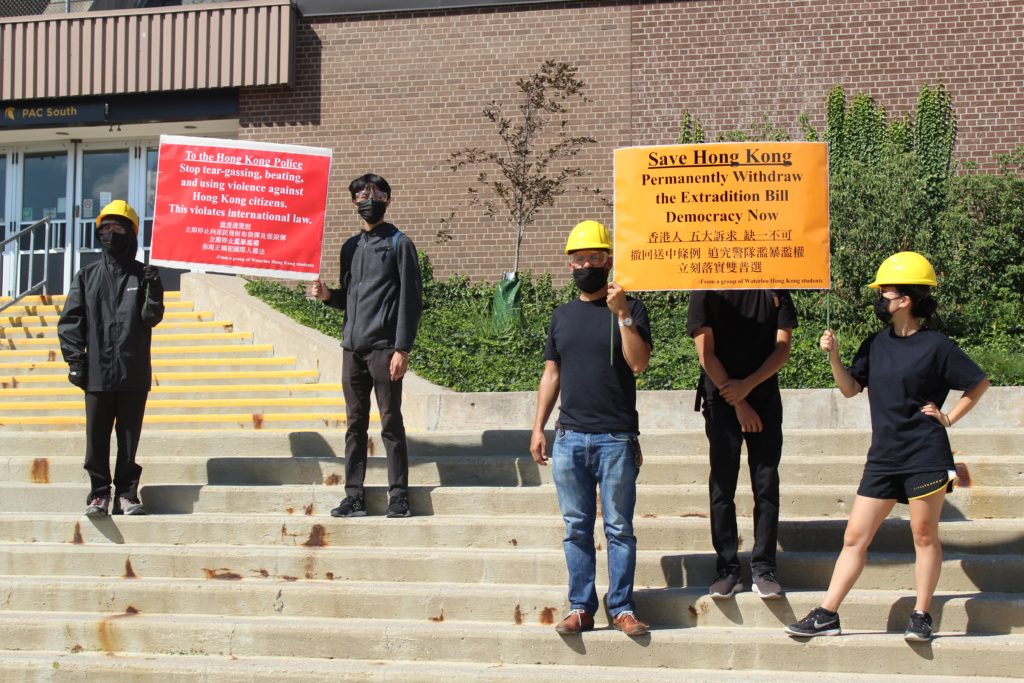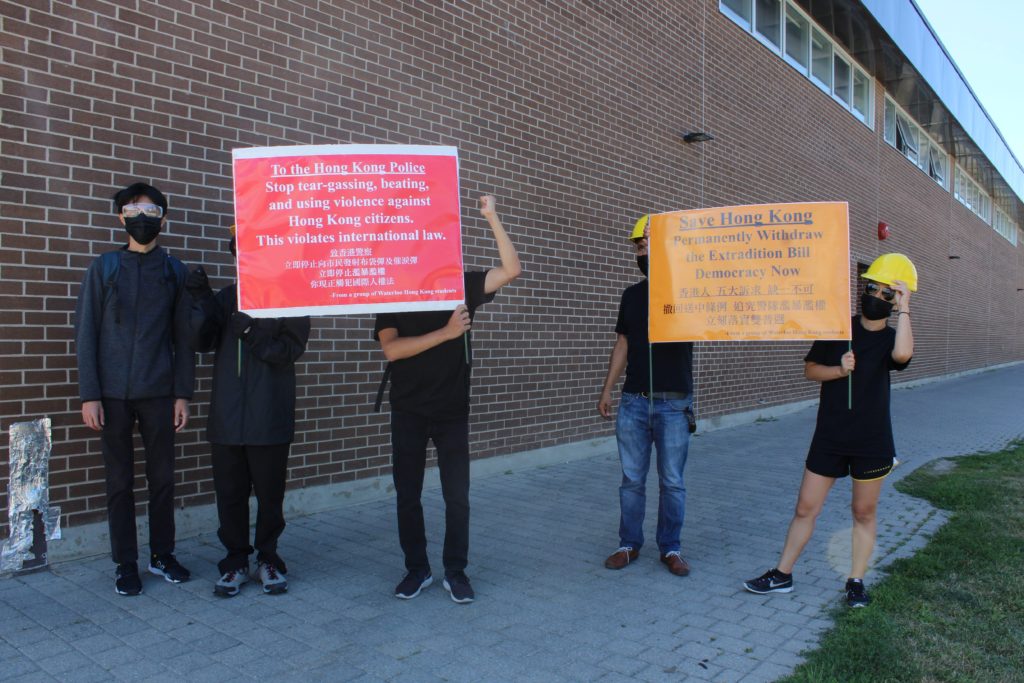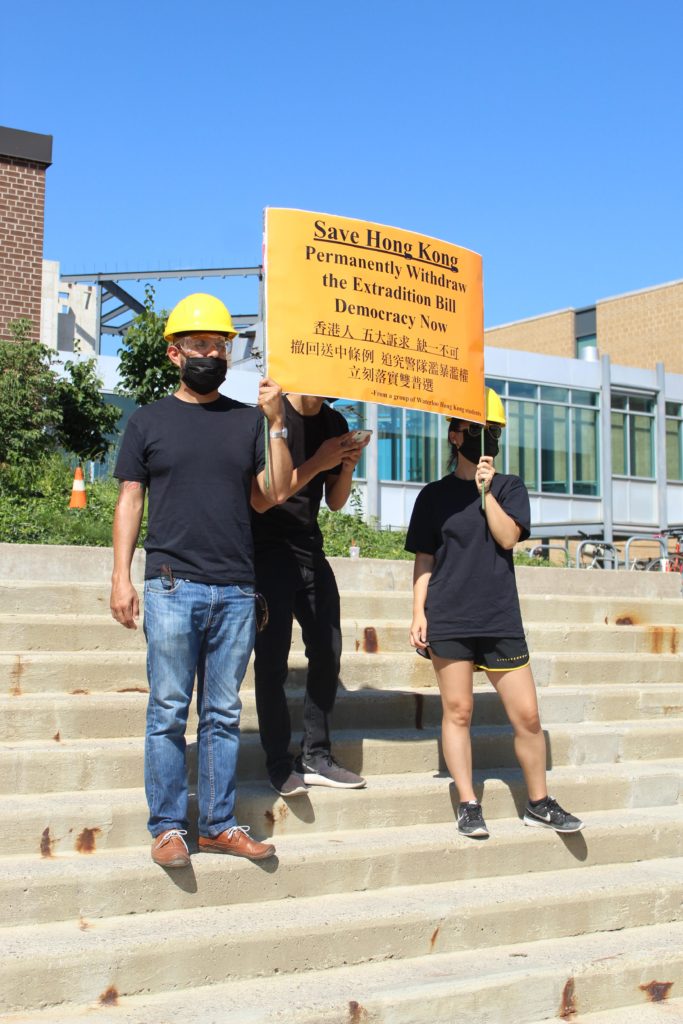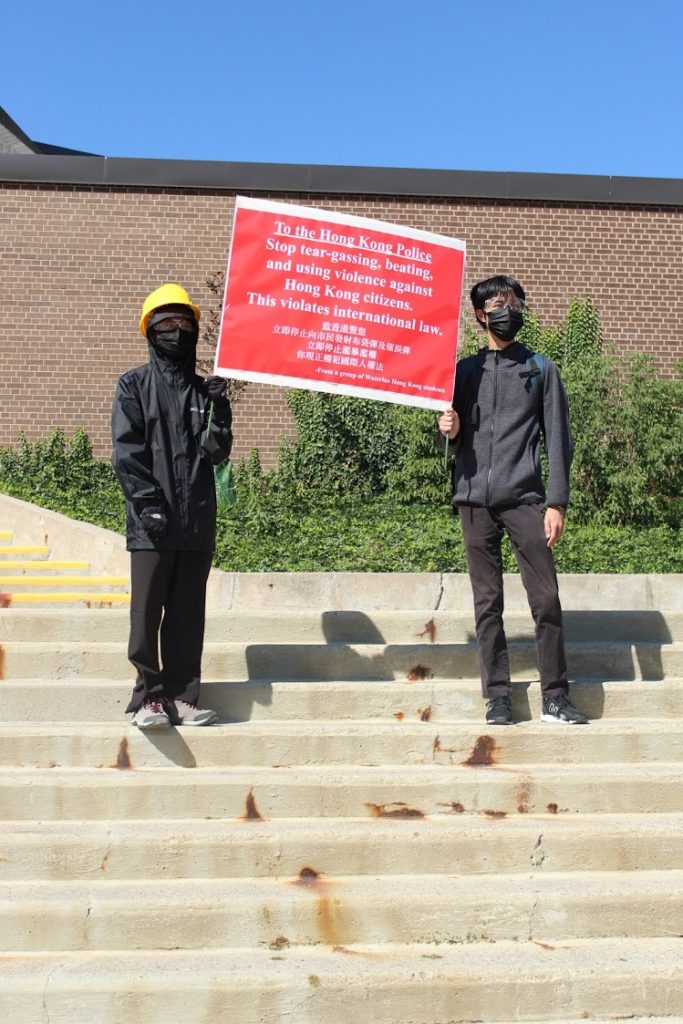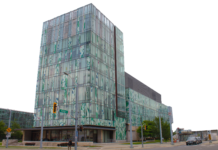The ongoing protest movement in Hong Kong has spilled over its borders into international institutions. The University of Waterloo was one of them.
The UW Hong Kongers, a group of UW students, organized a demonstration in support for the Hong Kong protest movement on August 14.
Five protesters marched along Ring Road holding up signs that demanded the permanent withdrawal of the Chinese Extradition Bill, as well as the termination of the use of tear gas, beatings, and other violent methods against the Hong Kong protesters.
Three participants of the UW Hong Kongers protest spoke to Imprint on the condition of anonymity, fearing repercussions from the Chinese government to the protestors’ family in Hong Kong.
According to the UW Hong Kongers, the protests in Hong Kong arose from the fear that the proposed Extradition Bill may allow the Chinese government to impose unjust sentences for Hong Kong suspects.
“The problem with [the Extradition Bill] is that as we all know, the Chinese legal system is one of the least robust and most politically influenced court systems in the world,” said a member of the Hong Kongers.
“Many dissidents are sent to prison and do not face a fair trial, and that is the fear that Hong Kong people have.”
The protester added, “Imagine if Canada was now subject to Chinese law and the Chinese government can extradite anyone it wants in Canada back to China. That is what we are facing back in Hong Kong today.”
The Hong Kong protests have also spilled over to the r/waterloo community on Reddit, in which several users, most of them claiming to be from mainland China, showed their support towards the protesters in both Hong Kong and the University of Waterloo.
A few of the users criticizing the protest movement, specifically u/gangdunmsl, u/bbbdddzz, and u/dddnaiq, did not exist before August 12, 2019.
The only post they commented on displayed a UW student claiming to be from mainland China showing support for the Hong Kong protest movement, arguing that the student, as well as other users showing their support, were not Chinese.
In addition, u/bbbdddzz created their own post in response to the UW Hong Kongers protest, arguing that the only people who resorted to violence were the protesters themselves and that any user who countered their argument were brainwashed by the Western media, while providing only Weibo posts for evidence.
Several critics of the Hong Kong protests accused the protesters for trying to separate itself from China.
The UW Hong Kongers disagreed with this claim.
“In my opinion, a lot of Hong Kongers have no intention whatsoever towards independence from Hong Kong,” said a protester.
“We would like the keep the ‘one country, two systems’ that the Chinese government promised us, which is written in both the Sino-British Joint Declaration, as well as the Basic Law.”
For reference, Article 22 of the Basic Law of the Hong Kong Administrative Region of the People’s Republic of China stated:
“No department of the Central People’s Government and no province, autonomous region, or municipality directly under the Central Government may interfere in the affairs which the Hong Kong Special Administrative Region administers on its own in accordance with this Law.”
The people of Hong Kong are protesting against a Chinese bill proposed on February 2019.
If approved, the bill would result in the extradition of Hong Kong suspects to mainland China for potential sentencing and prosecution. The Hong Kong police have made at least 748 arrests since protests began in June.
Several demonstrations have occurred in Hong Kong against the Extradition Bill with varying results.
Approximately 1.7 million people flocked to Victoria Park to participate in a massive protest march on August 18.
The event was confirmed to be mostly peaceful and resulted in no police intervention. However, the sit in at the Hong Kong International Airport from August 9 to 13 required the airport to cancel all flights for two days.
Some protesters were found hitting a mainland Chinese reporter with zip-ties due to fears that the reporter may have been an undercover officer, while others were seen barricading paramedics from reaching a man seemingly beaten unconscious until police officers arrived.
The protesters have since apologized for their actions at the airport sit-in.
The Hong Kong police have also resorted to violence in response to protests.
Notable incidents included police officers firing tear gas at a subway station, as well as allegedly shooting a woman in the eye with a beanbag round, shattering the bones around her eye socket.
The Hong Kong police admitted to the use of undercover officers during demonstrations, but defended such practices as necessary to arrest what they deemed as “extreme violent rioters”.
The protesters are currently requesting the Hong Kong government to fulfill five demands:
- The permanent withdrawal of the Extradition Bill.
- A retraction of the government’s claims of the protest movement as “riots”.
- An independent inquiry about police brutality.
- The release of all protesters held in custody.
- Universal suffrage in Hong Kong for both the Legislative Council and the Chief Executive.
In response, Carrie Lam, the Chief Executive of Hong Kong, issued a public apology to the Hong Kong public on June 18 and later announced that “the bill is dead” on July 9.
However, the vast majority of protesters were dissatisfied with Lam’s response, claiming that the apology failed to acknowledge the five demands, and that the bill has only been suspended rather than withdrawn.
The Sino-British Joint Declaration, signed by the UK and China in 1984, granted the return of Hong Kong to China as an autonomous region in 1997 as part of Hong Kong’s “one country, two systems” principle.
According to the UW Hong Kongers, the protest movement was aimed to protect this statement.
“The demands for Hong Kongers are very simple; that is to repair and restore the ‘one country, two systems’ policy that the Chinese government promised us,” said a member.
“In the past few months, we see that many of the violence and clashes between Hong Kong and its government are clear indicators that the ‘one country, two systems’ is failing because the Chinese government is intervening.”
The UW Hong Kongers hoped that their demonstration would influence students of the University of Waterloo to stay updated on the situation in Hong Kong, and to pressure their federal governments to show more support for Hong Kong.
“We would like Canada to follow the lead of what the United States has done,” stated a member.
“The United States are very likely to start sanctioning all Hong Kong government officials who are responsible for the erosion of freedoms in Hong Kong. We also want Canada to do something that the U.S. has done, which is the Hong Kong Human Rights and Democracy Act. [This act] forces Hong Kong to continue to be sufficiently free and autonomous in order for [the city-state] to continue receiving different treatments by Canada and the United States in terms of trade deals, diplomacy, and other things separate from mainland China.”
UW was not the only institution that dealt with the Hong Kong protests. Both Simon Fraser University and the University of Queensland in Australia faced their own disturbances in regards to Hong Kong.
The original Lennon Wall located in Simon Fraser University was repeatedly destroyed and rebuilt due to students posting inspirational messages towards the Hong Kong protesters on the wall.
Meanwhile, a fight broke out between Hong Kong and mainland China supporters at the University of Queensland in Australia, in which students were recorded destroying protest signs and blasting the Chinese national anthem at protesters.
























